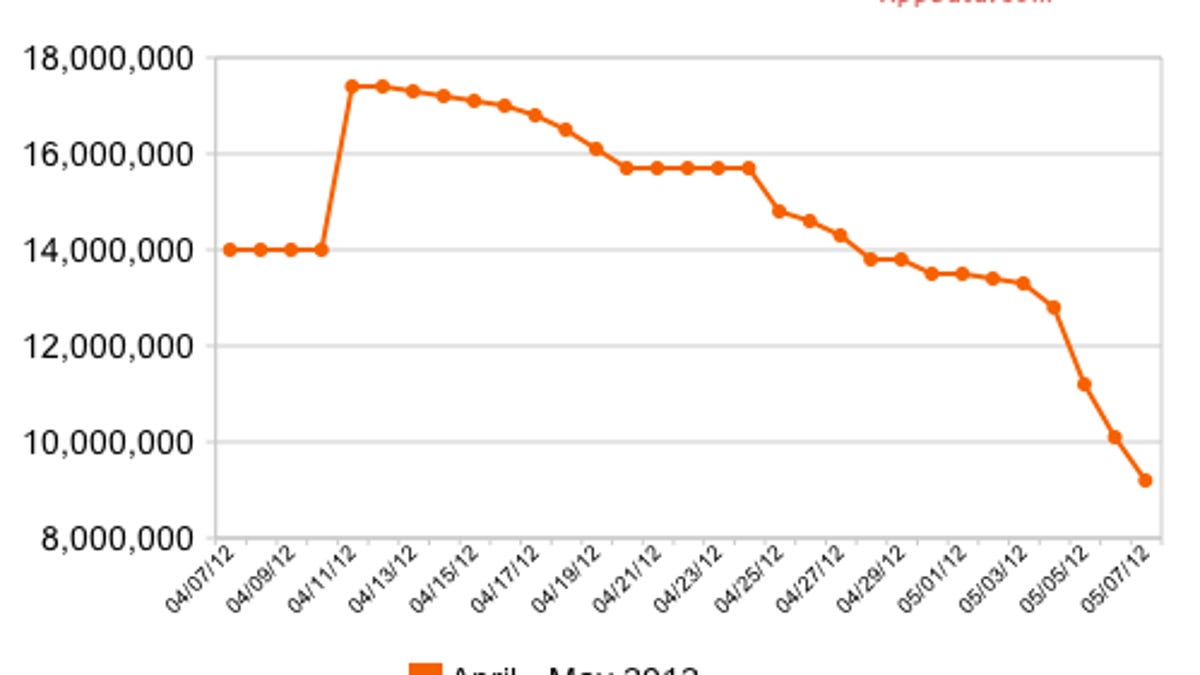Facebook social reader usage crashing and burning
News sites from The Washington Post to The Guardian are seeing the number of people sharing articles through their social reader tools cratering.

If you hate Facebook social readers as much as the next guy, you'll probably love hearing that the tools, which let you share articles you're reading, are tanking.
In a post on BuzzFeed today, we find that social readers from publications as diverse as The Washington Post, The Guardian UK, Daily Motion, and others, are collapsing. Essentially, users are abandoning the tools in droves. For example, The Washington Post, which grew its social reader to nearly 18 million users last month, has subsequently seen that number crater -- it's sitting at 9.2 million today, according to AppData.com.
Even worse, the tool had been getting more than 4 million daily users as recently as the second week of April, but ended up near zero for most of the rest of the month and is currently wallowing at around 220,000 daily. The publication's social reader is advertised with this catchy plug: "News travels fast on Washington Post Social Reader. Get articles from the Web's best sources, instantly share the stories you read with your friends, and see what your friends are reading. Start spreading the news!"
But what seems clear is that the only thing that's spreading is a viral disgust with the application.
The same seems to hold true of other social readers. Dailymotion, which is a video site that features a social-reading app, also seems to be hemorrhaging users, dropping from a high of about 3.5 million in early April to about 670,000 today. And The Guardian, which topped out at nearly 6 million monthly average users and was still at 5.5 million last week, has now fallen to 3.9 million monthly average users.
"Social readers always seemed a little too share-y, even for Facebook," BuzzFeed wrote. "They felt more like the kind of cold, descriptive, invisible, and yet mandatory services we're used to seeing from Google rather than the genuinely new and useful tools for spreading information. And they feel, I don't know, kind of broken right now?"
After BuzzFeed's post was initially published, the Washington Post's engagement producer responded in a tweet: "Social reader 'collapse' is b/c of evolving FB modules. Before: 'double-double,' 4-5 stories down in a list, w/ friend icon--drove growth."
It could be, BuzzFeed concludes, that "social readers are appearing less prominently in users' timelines, in part due to the site's new 'Trending Articles' feature, which promotes (and effectively minimizes) social reader stories in one place. So it's not entirely a matter of fatigue."
That explanation makes some sense, especially given the calamitous drop-off all three readers mentioned above showed in such a short period of time. Still, many people seem turned off by the tools, and this may be a good example of function following form.

